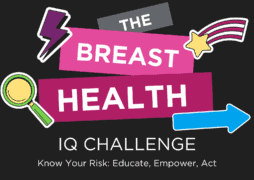A new report on the global state of breast cancer was released by the Lancet Breast Cancer Commission in April 2024. The results clearly show that while we have made great progress in how breast cancer is detected, treated and managed, not everyone has equally benefitted from these advancements. In fact, many groups are still being left behind, including members of underresourced communities and people living with MBC.
“The unprecedented health and economic crisis we are undergoing as a nation has highlighted how important our patient support, research and advocacy are for people facing breast cancer – they need us now, more than ever,”
– Paula Schneider, Komen’s President and CEO
The Lancet Breast Cancer Commission Report lays out an evidence-based roadmap that describes several challenges experienced by breast cancer patients throughout the world. The report also proposes solutions that will make the biggest impact in saving lives.

Komen is committed to addressing these challenges and meeting the needs of every person in our diverse breast cancer community. The points below illustrate how our work aligns with the approach of the Lancet report – to provide better visibility and treatment for everyone affected by breast cancer, regardless of who they are or where they live.
Reducing Breast Cancer Risk through Educational Resources and Advocacy
The Lancet report suggested that about 25% of breast cancers in high-income countries could be avoided through education on controllable risk factors and changes in policy.
To empower people to take charge of their breast health, Komen provides evidence-based breast health information that helps them understand their risk and have meaningful discussions with their health care providers.
We also advocate for policies like the SCREENS for Cancer Act in the U.S. that support screening and early detection of breast cancer, as well as policies that alleviate the patient burden and financial toxicity associated with a breast cancer diagnosis.
Investing in Inclusive Research
Researchers have made great strides in finding treatments and treatment approaches that are unique to each person’s tumor. However, the commission noted that participation in clinical trials is low and does not reflect the diversity of the breast cancer community.
Personalized medicine is one of Komen’s key research priorities. To date, Komen has invested more than $340M in more than 729 projects advancing personalized medicine.
To find the cures for breast cancer, all communities must be represented in breast cancer research. This is why Komen launched ShareForCures, a patient-powered breast cancer research registry that connects scientists with information from people who have or have had breast cancer.
Highlighting the Needs of the MBC Community
The Lancet report finds that across the world, the metastatic breast cancer (MBC) community faces stigma, a lack of understanding, and a feeling of exclusion from the medical and breast cancer community. Komen knows the MBC community needs more support and inclusion and to be better understood by the larger breast cancer community.
In response, we have launched programs like the MBC Impact Series to provide people living with MBC and their loved ones a safe, collaborative space to gather information related to MBC and discover practical resources to help make decisions for improved physical and emotional health.
Since 1982, our investment in research has contributed to the discovery of over 400 breast cancer treatments focused on MBC. Komen’s Patient Care Center (PCC) provides individualized support by highly trained patient navigators for those living with MBC , assisting with resources, access to care, financial assistance and even emotional support for as long as they need.
Uncovering the Hidden Costs and Burden of Breast Cancer
The Lancet report showed the extent of the burden, both financial and psychosocial, associated with a breast cancer diagnosis worldwide.
Komen knows the burden of breast cancer is too heavy to shoulder alone. The financial toxicity of breast cancer is well documented, but Komen recently published a white paper called Making Ends Meet to dig into the financial toxicity and burden of the breast cancer experience through the lens of Komen’s Financial Assistance (KFA) program.
During FY24, the KFA program distributed almost $11 million in financial support to more than 16,000 people. Almost all survey respondents (93%) said they made fewer financial sacrifices to cover their breast cancer with this support.
Improving Patient Outcomes through Communication
The report also identified one way to improve outcomes is to bring patients to the center of clinical communication, giving people more autonomy and ownership over their treatment.
Komen includes patient advocates in research through our Advocates in Science program to ensure the patient perspective is reflected in the research being conducted and the research being funded.
Komen’s PCC navigators also guide patients through the complicated health care system, helping them communicate with their health care team and advocate for themselves amidst the uncertainty of a breast cancer diagnosis.
While the Lancet report shows us there are still many existing inequities in the breast cancer community, it also provides recommendations for a strategic, multi-faceted approach that will improve outcomes for everyone.
Komen knows that only through this type of approach will we be able to close the disparities gap and save more lives and, ultimately, end breast cancer forever.



